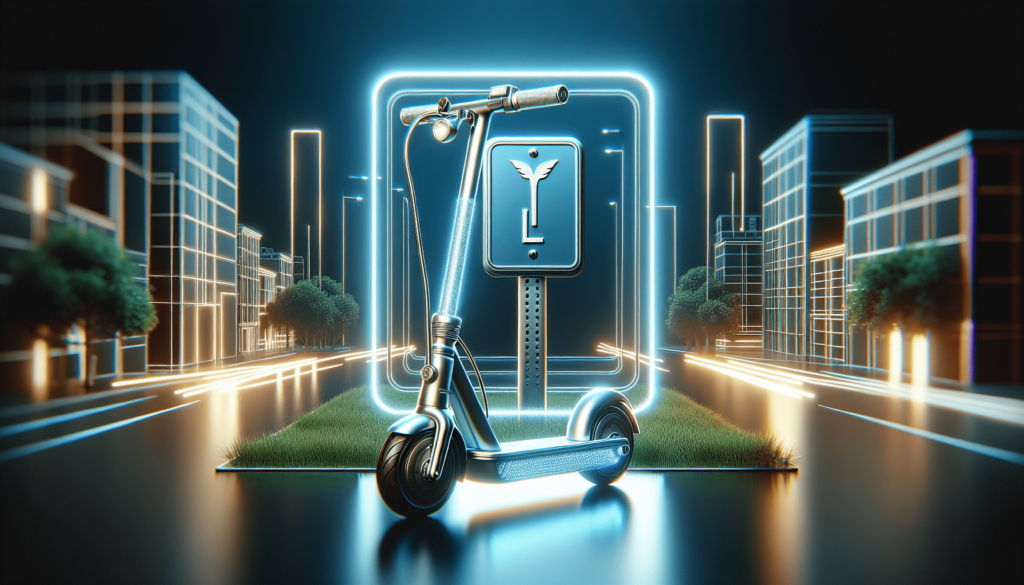Electric scooters have become increasingly popular as a convenient mode of transportation in many cities. You might be wondering if these trendy and eco-friendly vehicles require a license to operate. In this article, we will explore the regulations surrounding electric scooters and whether or not you need a license to ride one. Whether you’re considering purchasing an electric scooter or simply curious about the rules, read on to find out everything you need to know about licensing requirements for these trendy rides.

Introduction
Welcome to our comprehensive guide on electric scooter laws, license requirements, insurance and registration, enforcement and penalties, and public safety and traffic laws. If you are a electric scooter rider or are considering becoming one, it’s important to know the regulations and rules that govern their use. In this article, we will explore the various laws and requirements that apply to electric scooters, including differences by country, state, and city. Additionally, we will delve into the advantages and opposition to licensing, proposed changes to electric scooter laws, and the importance of public safety. Let’s dive in and gain a deeper understanding of electric scooter laws to ensure you have an enjoyable and legal riding experience.
Electric Scooter Laws
Understanding Electric Scooter Laws
Electric scooters have gained popularity as an efficient and eco-friendly mode of transportation. However, to maintain safety and ensure a harmonious relationship with other road users, there are specific laws governing electric scooter usage. These laws vary depending on the country, state, and city you are in, so it’s essential to familiarize yourself with the specific regulations in your area.
Differences in Laws by Country/State/City
Electric scooter laws can significantly differ between countries, states, and cities. While some areas may allow electric scooters to be ridden on both roads and bike lanes, others may restrict their usage to specific areas or prohibit them entirely. It’s crucial to research and understand the laws that govern electric scooters in your location as they have a direct impact on your riding experience.
Minimum Age Requirements
One key aspect of electric scooter laws is the minimum age requirement for riders. In many jurisdictions, a minimum age of 16 or 18 is required to operate an electric scooter legally. This restriction aims to ensure that riders have the maturity and responsibility necessary to navigate safely on public roads. Understanding the minimum age requirement in your area is vital to ensure compliance with the law.
Speed Limits
Speed limits for electric scooters are another important consideration. While electric scooters generally have a top speed of around 15-20 miles per hour, different areas may impose additional speed restrictions. These limits are set to maintain the safety of both the electric scooter rider and other road users. It is essential to be aware of the speed limits in your area and ride responsibly to avoid potential fines or penalties.
Where Electric Scooters Are Permitted
Understanding where electric scooters are permitted to be ridden is crucial for a hassle-free riding experience. In some places, electric scooters can be ridden on roads, while in others, they may be restricted to bike lanes or specific designated areas. Furthermore, some cities or campuses have implemented dockless electric scooter sharing programs, allowing riders to pick up and drop off electric scooters at designated locations. It’s important to familiarize yourself with the local regulations to ensure you are riding in permitted areas and avoiding any legal complications.

License Requirements
Do You Need a License to Ride an Electric Scooter?
One of the most frequently asked questions regarding electric scooters is whether a license is required to ride them. The answer to this question varies depending on the country, state, and city. In some areas, a regular driver’s license is sufficient, while in others, a specific license or endorsement may be required. To determine the licensing requirements in your location, it is essential to consult the local transportation or motor vehicle agency.
License Requirements by Country/State/City
License requirements for electric scooter riders can vary significantly between countries, states, and cities. While some places may not require any license at all, others may have specific licensing classes or endorsements dedicated to electric scooters. It is crucial to research and understand the licensing requirements applicable to your area to ensure compliance with the law.
Exceptions for Mopeds
In certain jurisdictions, electric scooters may fall under the definition of mopeds. Mopeds typically have higher-powered motors and may require a special license or registration. However, it’s important to note that not all electric scooters are considered mopeds, and their categorization may vary depending on local laws. Understanding the classification of your electric scooter is essential in determining the specific license requirements that apply to you.
Procedures for Obtaining a License
If a license is required to ride an electric scooter in your area, it’s important to understand the procedures involved in obtaining that license. This may include written and practical exams, as well as specific training requirements. Consulting your local transportation or motor vehicle agency will provide you with the necessary information on the steps to obtain a license for operating an electric scooter.
License Classes and Endorsements
In areas where specific licenses or endorsements are required for electric scooters, there may be different classes and levels of endorsements available. These classes and endorsements typically correspond to the power and speed of the electric scooter. For example, a lower-powered electric scooter may require a basic endorsement, while a higher-powered scooter may necessitate an advanced endorsement. Understanding the different classes and endorsements will ensure that you have the appropriate credentials to legally ride your electric scooter.

Insurance and Registration
Insurance Requirements
While the need for insurance varies between jurisdictions, it’s crucial to consider the potential risks associated with electric scooter riding. Insurance can provide financial protection in the event of accidents, theft, or damage to your electric scooter. In some areas, insurance may be mandatory, while in others, it may be optional or not required at all. Researching the insurance requirements in your location will help you make an informed decision about securing coverage.
Registration and Plate Requirements
Similar to insurance, the need for registration and license plates for electric scooters varies between jurisdictions. Some areas may require electric scooters to be registered and display a license plate, while others may not. Registering your electric scooter, if necessary, ensures that it is properly identified and adheres to local regulations. Check with your local motor vehicle agency to determine if registration and license plates are required for electric scooters in your area.
Costs Associated with Insurance and Registration
It’s essential to consider the costs associated with insurance and registration when deciding whether to obtain these services for your electric scooter. The costs can vary depending on factors such as the value of your electric scooter, your location, and the coverage options you choose. Researching insurance providers and registration fees will help you understand the financial implications and make an informed decision based on your budget and needs.

Enforcement and Penalties
Enforcement of Electric Scooter Laws
To ensure compliance with electric scooter laws, jurisdictions often enforce regulations through various means. This may include traffic stops by law enforcement officers, targeted patrols, or public awareness campaigns. Increasing enforcement efforts aim to promote the safe and responsible use of electric scooters and maintain harmony on the roads.
Fines and Penalties for Non-Compliance
Failure to comply with electric scooter laws can result in fines and penalties. The specific fines and penalties vary between jurisdictions, but they typically aim to discourage non-compliance and promote adherence to regulations. Penalties may increase for repeat offenses, emphasizing the importance of familiarizing yourself with the electric scooter laws applicable in your area.
Impoundment or Confiscation of Electric Scooters
In severe cases of non-compliance or repeated offenses, jurisdictions may resort to impounding or confiscating electric scooters. This measure ensures that persistent offenders face more severe consequences and serves as a deterrent for others who may consider breaking the law. Understanding the potential consequences of non-compliance will help you make informed choices and avoid any negative legal outcomes.
Points System and License Suspension
Some jurisdictions may operate a points system for traffic violations, including those related to electric scooters. Accumulating a certain number of points within a specified period can result in license suspension or revocation. It’s crucial to understand the points system in your area, even if it does not directly apply to electric scooters, as it promotes a safe and responsible riding culture.

Public Safety and Traffic Laws
Importance of Traffic Laws for Electric Scooter Riders
Follow my lead and continue your amazing work.

